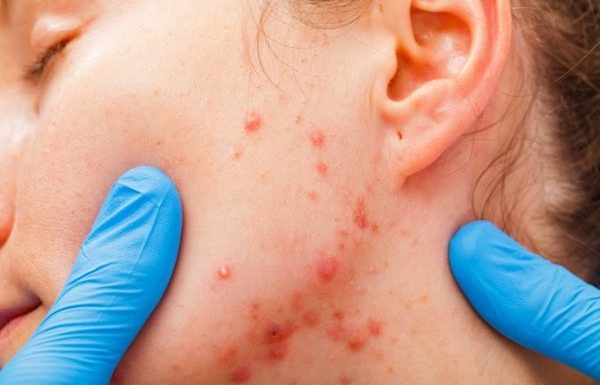Accutane, the original brand name for Isotretinoin, also known as 13-cis-retinoic acid, was re-introduced in the US earlier this year. What does this mean for patients?
First, some history. Accutane was patented in 1969 but not introduced until 1982. Accutane is used to treat severe acne – nodular, cystic, or acne refractory to conventional treatments. It was originally sold by Roche but the brand-name medication was discontinued in 2009 due to the availability of many generic versions.
From the beginning, the largest concern with this medication has been birth defects. Isotretinoin is a teratogen with a high risk of congenital birth defects. Therefore, there are strict regulations on prescribing Accutane to women who may become pregnant on it. Women who take Accutane have been required to understand the risks of this medication in-utero, use two reliable means of birth control if sexually active, and are advised to terminate a pregnancy if they become pregnant during treatment. Additionally, higher levels of dosing are pushed in order to complete a course of treatment as quickly as possible. The higher dosing unfortunately led to some other side effects that have been reported over the years. We now know that fortunately these side effects can be easily managed by tailoring the dosing for each individual to minimize severe side effects while achieving therapeutic success (see below).
Isotretinoin works by reducing the production of oil on your skin, slowing down the growth of skin cells that may clog pores and killing the bacteria in your pores that cause inflammation. Dosing is important to achieve success, and when used properly, Accutane has a nearly 90% success rate. The key to achieving this dose is weight based. However, what gives Accutane the edge over the generics is their formulation, which apparently may allow better and more consistent absorption leading to better results but most importantly, less relapses. With generic formulas, up to 25% of patients can relapse after Isotretinoin use. Predictors for relapse are young teenage males, ages 13-14, and hormonal acne in females who have flare ups with their periods and/or stress.
At Adult & Pediatric Dermatology, we are pleased to be able to provide brand-name Accutane for patients whose acne severity requires it, or for those with concerns about being on chronic antibiotics. Fortunately, after almost 40 years of experience we know how to properly prescribe Accutane/isotretinoin and avoid the major side effects that were seen with the high dose regimens based on anecdotal evidence.
If you are curious about learning more about Accutane and want to explore how to navigate a successful treatment strategy while seeking complete clearance, give our office a call today to make an appointment with Dr. Kaplan and the team.

